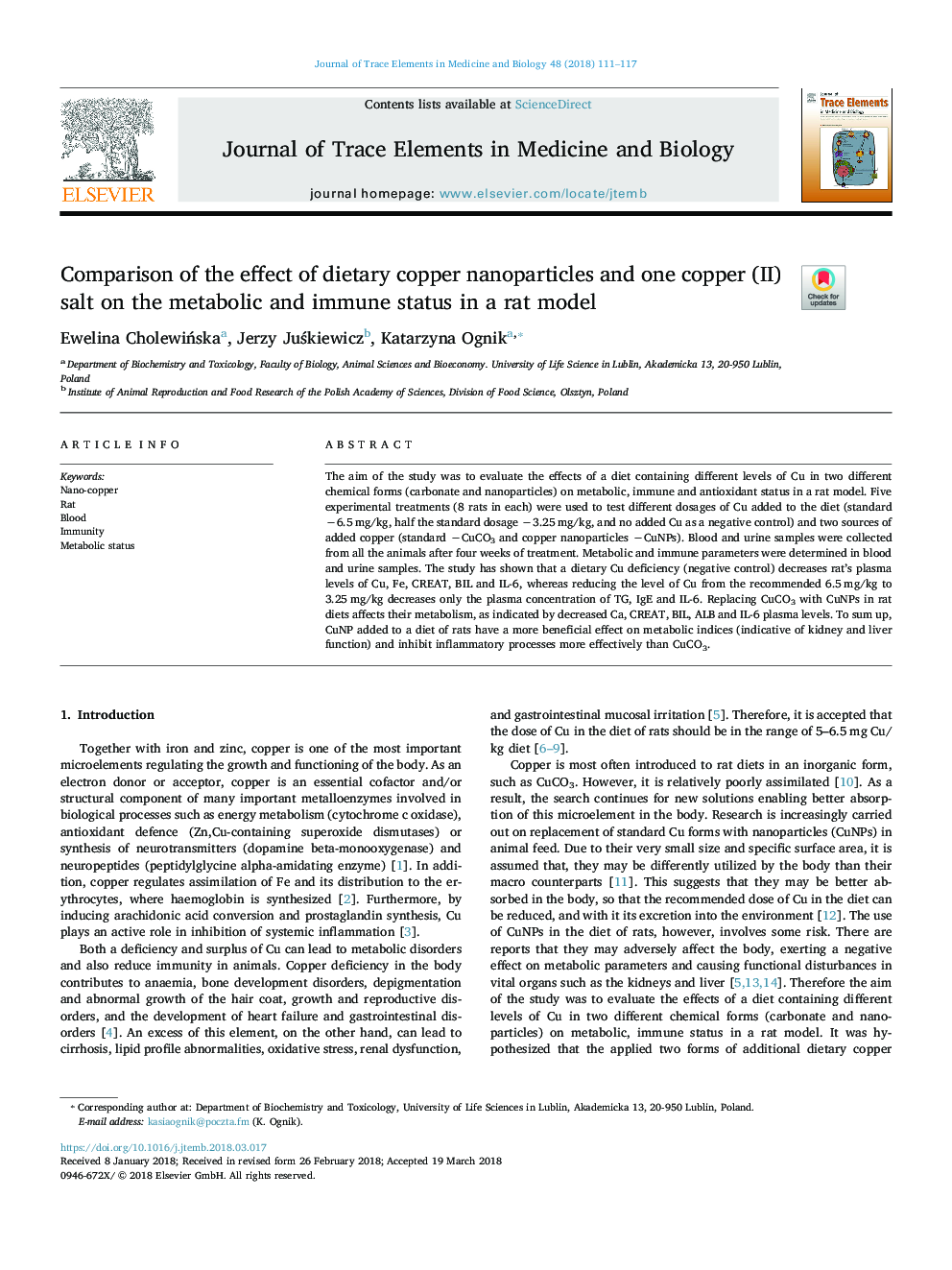| Article ID | Journal | Published Year | Pages | File Type |
|---|---|---|---|---|
| 7638843 | Journal of Trace Elements in Medicine and Biology | 2018 | 7 Pages |
Abstract
The aim of the study was to evaluate the effects of a diet containing different levels of Cu in two different chemical forms (carbonate and nanoparticles) on metabolic, immune and antioxidant status in a rat model. Five experimental treatments (8 rats in each) were used to test different dosages of Cu added to the diet (standard â6.5â¯mg/kg, half the standard dosage â3.25â¯mg/kg, and no added Cu as a negative control) and two sources of added copper (standard âCuCO3 and copper nanoparticles âCuNPs). Blood and urine samples were collected from all the animals after four weeks of treatment. Metabolic and immune parameters were determined in blood and urine samples. The study has shown that a dietary Cu deficiency (negative control) decreases rat's plasma levels of Cu, Fe, CREAT, BIL and IL-6, whereas reducing the level of Cu from the recommended 6.5â¯mg/kg to 3.25â¯mg/kg decreases only the plasma concentration of TG, IgE and IL-6. Replacing CuCO3 with CuNPs in rat diets affects their metabolism, as indicated by decreased Ca, CREAT, BIL, ALB and IL-6 plasma levels. To sum up, CuNP added to a diet of rats have a more beneficial effect on metabolic indices (indicative of kidney and liver function) and inhibit inflammatory processes more effectively than CuCO3.
Related Topics
Physical Sciences and Engineering
Chemistry
Analytical Chemistry
Authors
Ewelina CholewiÅska, Jerzy JuÅkiewicz, Katarzyna Ognik,
